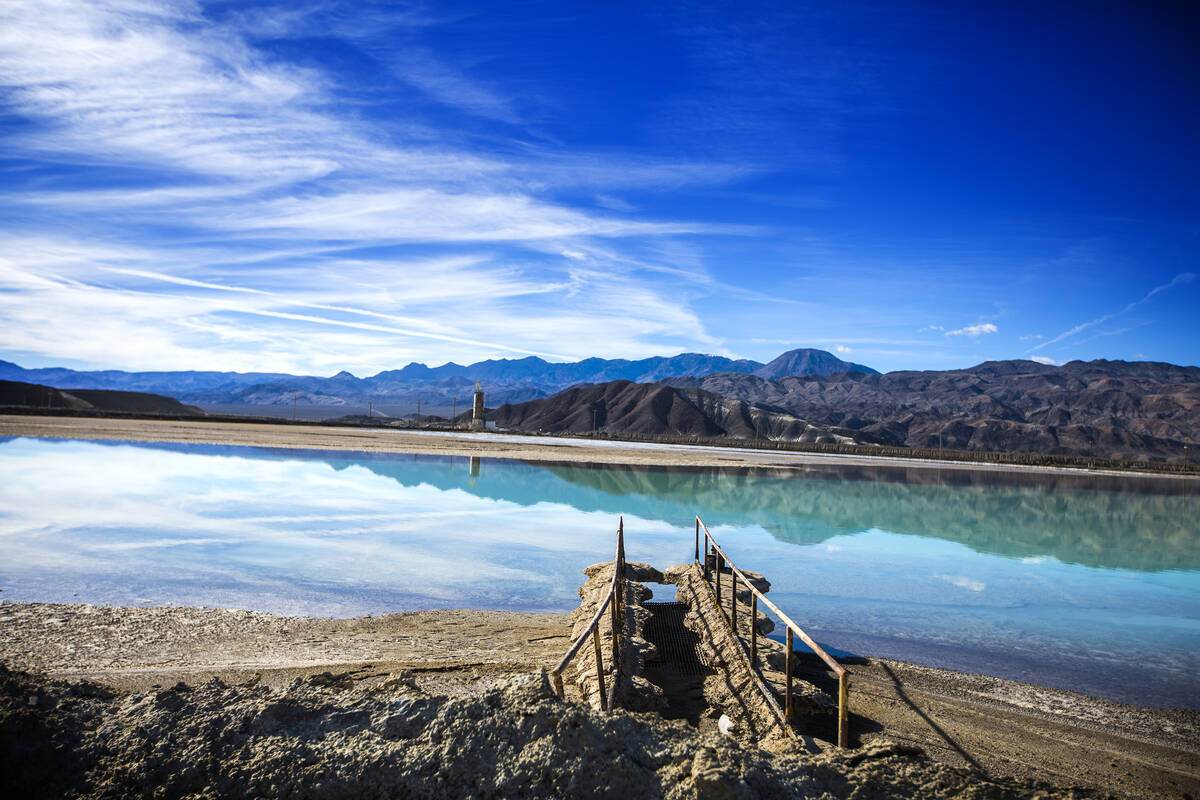COMMENTARY: Energy security depends on modernizing a broken federal permit process
As war in Europe underscores the importance of secure energy supply chains, some good news from Nevada shows how the United States can boost domestic supplies of critical minerals and reduce dependence on foreign adversaries, such as Russia and China. Success hinges on the federal government’s capacity to unleash private-sector innovation, not restrict it.
Last month, Nevada approved the final permits needed for Lithium Americas’ proposed Thacker Pass project, which would be the second active lithium mine in the United States. Domestic demand for lithium is rising as the country builds more energy storage for grid reliability and electric mobility.
The Trump administration approved Thacker Pass on Jan. 15, 2021, but the project is still months away from construction while the company resolves remaining permitting and litigation.
The fact remains that it shouldn’t take this long. A decade in the making, Thacker Pass highlights the need for modernizing the permitting process to produce a domestic supply of critical minerals necessary for clean energy development.
America’s dependence on foreign sources of critical minerals is well known. The United States is import-reliant for 31 of 35 critical minerals and has no domestic production for 14 of those minerals. By 2040, demand for energy-related minerals such as lithium, cobalt, graphite and nickel could grow by 20 to 40 times, according to the International Energy Agency.
Regardless of where the minerals are mined, China controls the refining process, including for lithium. Russia is also one of the top nickel producers, a key mineral for energy storage. If the United States does not diversify its sources, growing demand for minerals will undermine our energy security and clean energy goals.
Building a diverse supply chain requires supporting innovative technologies from development to construction, which includes permitting. The Bipartisan Infrastructure Law included more than $6 billion to develop and demonstrate critical mineral projects, but none of it matters if projects can’t obtain the permits they need to build on reasonable timelines.
While domestic projects such as Thacker Pass are promising, the federal government’s track record on permitting is not. A dispute over protecting a rare form of buckwheat has stalled Ioneer’s Rhyolite Ridge Lithium-Boron Project in Esmeralda County, which the company says is the largest known lithium and boron deposit in North America.
Ioneer has received permits from the state of Nevada, but the Bureau of Land Management has yet to approve the project over the buckwheat issue. Ioneer says the federal permit is the only thing preventing construction.
The Twin Metals Minnesota project is even less fortunate. A proposed mine in Northeast Minnesota’s Duluth Complex, Twin Metals is the world’s largest known undeveloped copper-nickel deposit, according to the company. The project was stuck in regulatory limbo for years until January, when the Interior Department canceled its mineral leases.
If the United States stands any chance of meeting clean energy goals with domestic resources, the federal government must permit projects in a timely fashion.
To be sure, regulators should uphold strong environmental standards, as required by law. But the government must reach its decisions on predictable timelines. Regulatory uncertainty is the death knell of investment, particularly for trade-exposed industries such as mining that are necessary to build a domestic clean energy supply chain.
Congress is finally pressuring federal regulators to change their ways. An overlooked provision in the infrastructure law directs Interior to “demonstrable improvements in the performance of federal permitting and review processes, including lower costs and more timely decisions.” It also directs the agency to develop a “performance metric” to evaluate its progress in expediting permitting.
While a good start, statutory direction alone is not enough. Ultimately, it will be up to Congress to hold the department accountable for meeting its statutory obligations and imposing additional requirements if necessary.
Everyone agrees the United States needs more minerals and that we should get more of our minerals from domestic sources, not from China. The next step is to recognize that U.S. energy security depends on modernizing the broken federal permitting process.
Alex Fitzsimmons is senior policy director at ClearPath, a D.C.-based nonprofit that develops and advances policies that accelerate breakthrough innovations to reduce emissions in the energy and industrial sectors. He is a former deputy assistant secretary at the U.S. Department of Energy.






















